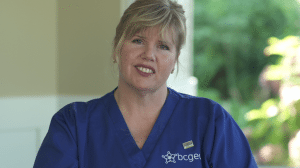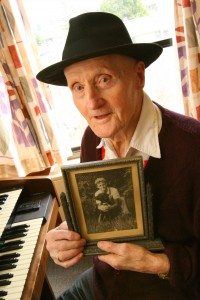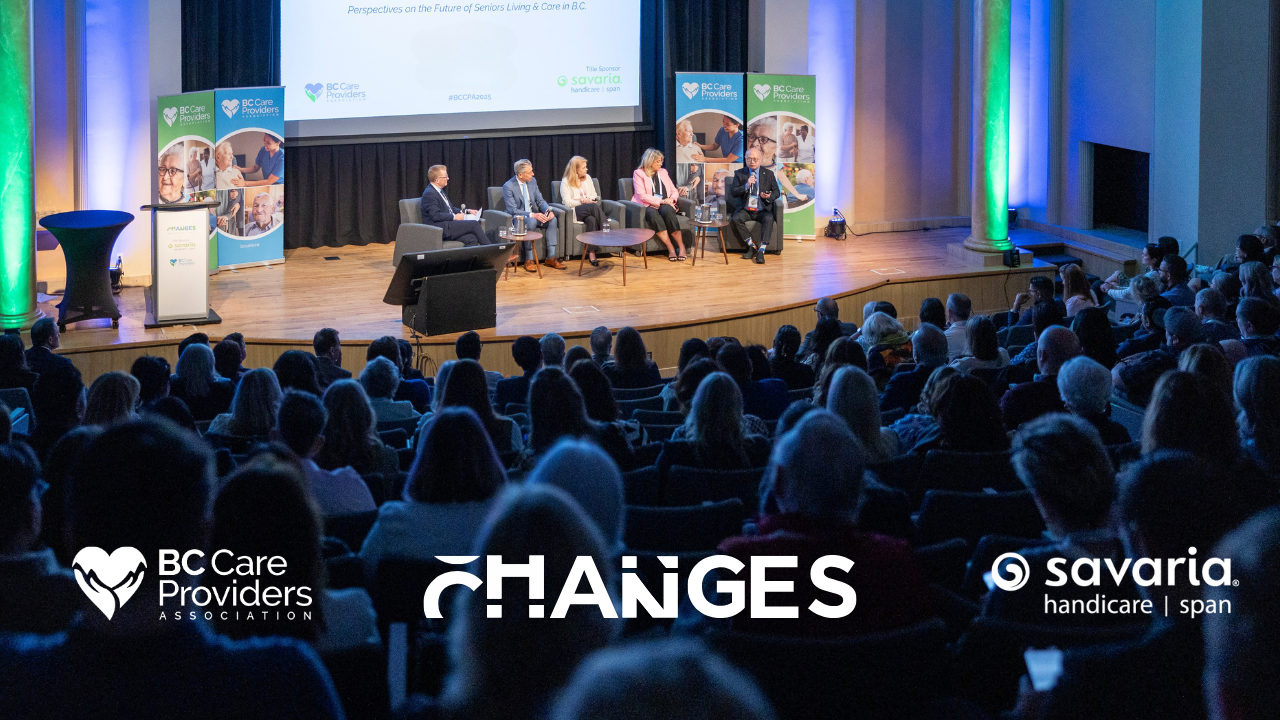Mona Morgan has been in the health care industry for 31 years. Her original career aspiration was to be a physical education teacher – until a serious shoulder injury put her on the side lines. Upon the advice of her mother she contemplated a career in nursing.
“I had intended to work in acute care, it wasn’t until I actually experienced working with and getting to know seniors that I realized how important and wonderful the work is.”
Mona then completed the Care Aide Certificate course where she learned to care for the physical and emotional needs of her client.
When asked how her job has changed over 31 years Mona replied:
“31 years ago I was utilized more in a preventative capacity. My job duties helped seniors with the more physical activities of daily living. We drove clients to their doctor appointments, took them out so they could buy their groceries, prepared meals, and monitored their nutrition. Our visit times were longer so we could include socialization time. There were also housekeeping duties: every two weeks a client would be permitted to get their laundry done and some vacuuming. Presently duties are much more medical in nature. Visits are only long enough to accomplish a task: such as medication https://bccare.ca/wp-content/uploads/2022/08/medcare-img22.jpgistration, shower assists, etc. and then we go on to the next client. Our duties are more reactive now. Clients come to us after becoming ill, sometimes because they haven’t been eating or drinking enough.”
Mona would love to see a more proactive, as opposed to reactive, approach to seniors care. She is passionate about what she does and those in her care. She knows that the quality of life of her clients is improved by what she does. Providing care that allows her clients to be as independent as possible is the most important part of her job. She thrives on the instant positive feedback from a job well done. Knowing and seeing that she has made a difference in people’s lives is one of the most rewarding aspects of her career.
The stories shared by those in her care are what got her hooked: Mona feels “it is like I am talking to history”. The personal connections made in the course of a visit are appreciated so much that she can’t help but feel good about what she is doing. Of course, she is careful to maintain a professional demeanor, is very conscious of the confidentiality of her clients and limits the details of her own personal life. 
For the last four years Mona has been an activist for the rights of Seniors and Health Care Assistants. She feels that she “can not help one without helping the other.” Education is the key. Mona feels that there must be a shift in perception. Community health workers need to be recognized by the public as an integral part of a medical care team. The community health workers themselves need to realize the importance of their work. She feels that only after the true value of the work of a community health worker is realized that positive change can occur. This shift in perception will aid in retaining workers in the field and attracting new ones.
Mona was a participant in the Home Care Summit Panel. She felt that this was an excellent start to building relationships between caregivers and their employers. She feels that community health workers need more opportunities to connect with other members of their field. This is very important in bridging isolation, which is one of the challenges she experiences. She hopes to see more opportunities created to highlight the complexity and importance of the work of caregivers.
Mona is an advocate for those in her care and those in her field. “My goal is to make everyone feel better than when I arrived.” And when she is not – she is shooting some hoops at the gym.
– Written by freelance writer Cathy Szmaus for the Seniors Care HR Planning Committee. Funding for this project was provided by the Canada-British Columbia Labour Market Development Agreement




